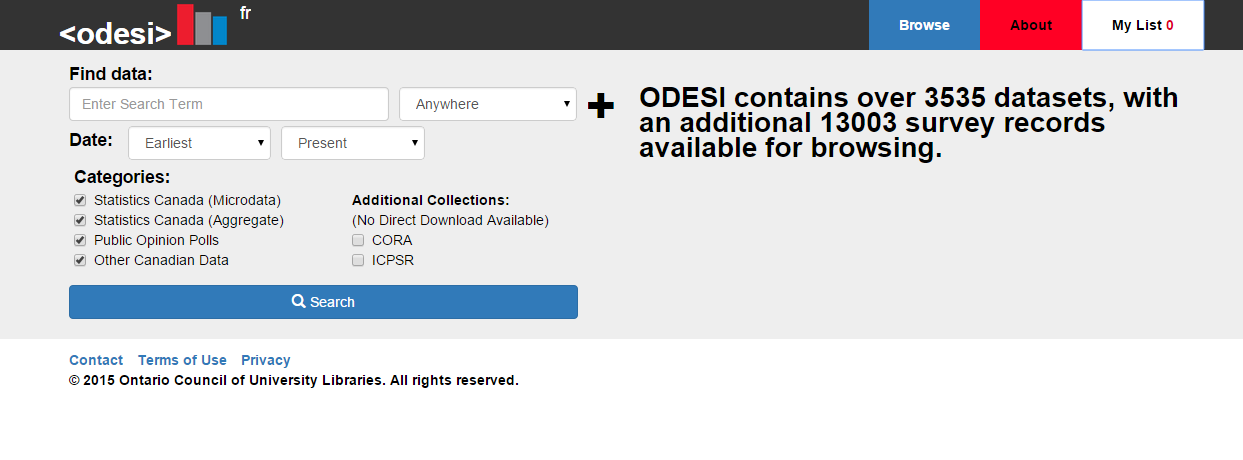
To the right of your search results, you can limit your search results based on keyword, series, or frequency.

#Download odesi download#

#Download odesi series#
They are grouped first by country, then by series title, and then year of production. Click the ‘+’ icon beside a topic to view its contents. In Nesstar, surveys are sorted first by topic. When you search through the catalogue, you can view data from surveys you are interested in by clicking “Explore and Download”, which will take you to the survey data in Nesstar.
.png)
This repository allows users to view and work with microdata files without the need for specialized statistical software. In data is stored in a repository called Nesstar. You can then export the citations for these surveys into Refworks or Endnote, or email them. My List: When searching, you can add specific surveys to your personal list. To return to the home page at any time, click the logo in the top left corner of the page.īrowse: This link will take you to the Nesstar repository, where you can browse available surveys.Ībout: Here you can find helpful information about, including learning resources and background information about the platform. Home Page: From the home page, you can search through survey data.

From the repository you can download data and documentation, run cross-tabulations, and analyze microdata. From the catalogue you can search and browse over 13,000 metadata records down to the variable level, and preview data in the repository. This study will provide lessons learned to other libraries around the world to help in reviewing their own operational policies for coping with the current COVID-19 pandemic and for future global public health crises.Has two different interfaces: a catalogue and a data repository (also known as Nesstar). Notably, all libraries in this study were operating as full-scale digital libraries. collection services and in-person events continuing to provide virtual reference services promoting access and usage of electronic collections suspending late fees and renewing checked-out items with a new due date and advising users to wait before returning borrowed items. Findings suggest that libraries in the samples adopted the following services and changes: closing the physical libraries suspending all physical. This paper documents the services and changes that library staff at a group of 15 Canadian university research libraries highlighted on their main pandemic pages and social media accounts during the early days of the coronavirus (COVID-19) pandemic.


 0 kommentar(er)
0 kommentar(er)
